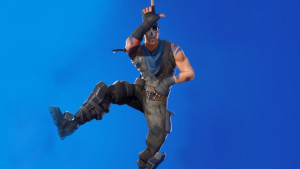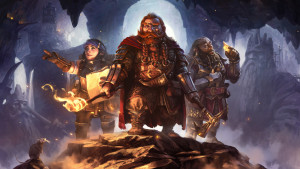Please support Game Informer. Print magazine subscriptions are less than $2 per issue
The Ins And Outs Of Game Consulting

(Above: Andre Vrignaud, Below: N'Gai Croal)
As the games industry continues to see a rise in development costs, studios and publishers will always need a little extra advice. If you’re working on a AAA project where one wrong move can cost months of work and millions of dollars, it's probably best to bring in an outside party for some perspective. This is where video game consultants come in.
You may have heard such a profession exists through various Internet shows and podcasts, but you probably can't name many individuals who actually do it for a living. After all, most of the work consultants do largely goes unnoticed by video game consumers. But most major titles today are looked over by these gaming experts as they offer advice that could have a major impact on a game's development and final product.
One such consulting firm is Hit Detection, a recent startup founded by former Newsweek editor N'Gai Croal. He started the company in early 2009 after spending 14 years at the magazine covering video games and technology. Hit Detection has since grown to a staff of five people and with several others on a contract basis. One of the recent hires is Andre Vrignaud, who previously worked at Microsoft as director of technical strategy in the Xbox division and more recently at Amazon.
Croal believes Hit Detection’s strong background in media and development can help game companies by providing feedback on key gameplay decisions and even shape public relations plans.
“When you put a game in the consumers’ hands or show it to media, at that point, the narrative is out of [the game company’s] hands and is being shaped by other people,” he explained. “So why not bring our perspective much earlier in the process so companies have a sense of how people are going to react and can make changes earlier than you would otherwise?”
For AAA console and PC games, Hit Detection typically works on projects anywhere between the concept stages through the first playable build. “Usually when we come in on a project we’ll go with it all the way through ship,” Croal explained, who added his team typically does not do postmortem-style feedback for games once they release.
Things are a bit different for MMOs or social games that are being developed on an ongoing basis, however. Because the publisher or developer can make changes on the fly based on the player metrics of their games, consulting then shifts to focus on helping understand the metrics and the marketplace.
“Certain titles are becoming like services and sometimes what people are looking for is just more depth and insight for what they have versus their competitors,” Vrignaud added.
Hit Detection’s 2010 client lists spanned 5 of the top 10 game companies and 7 of the top 20 globally. And while Croal was unable to provide specifics due to non-disclosure agreements, he did give a few examples of the types of development changes his company regularly encounters.
“We had a client working on a major game with three modes where one was taken out,” he said. “We were looking at this developer’s previous game and the scope of that game and what they were being asked to do for their current game, and felt they would be best positioned for success if they focused on just two of them and made them great.”
Other examples Croal gave included helping a developer change the order of certain levels based on the game's story and giving feedback on controls. “Really it’s whatever the game needs, that’s where we try to interface.”
So how does one become a game consultant anyway? There’s no established career path, but having experience and connections is key. “I can’t think of a consultant who hasn’t had some sort of experience and actually just been in the industry for years for which they can draw upon to deliver useful information to the clients,” Vrignaud explained.
Croal added, “Consulting is entirely a profession built on connections and reputation. If you don’t have those, or one but not the other, it’s going to be a challenge.”
The good news is the market for consulting is growing in large part because the risk of making a game is bigger than ever. “In order to both mitigate that risk and best position themselves for success, publishers and developers increasingly want to get as much targeted, useful feedback as possible early in the development process," Croal said.










